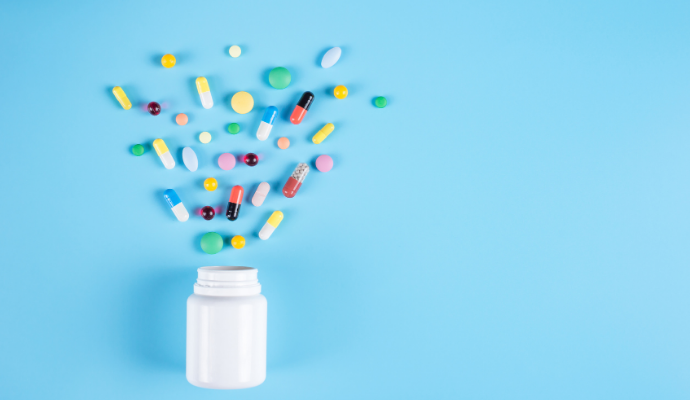HHS Buys 1.25M More Doses of Regeneron’s COVID-19 Antibody Cocktail
The additional supply of the COVID-19 antibody cocktail will be used in a total of 300,000 non-hospitalized coronavirus patients at no cost as part of Operation Warp Speed.

Source: Getty Images
- Roche recently announced that HHS and the Department of Defense (DoD) will purchase additional doses of Regeneron’s COVID-19 antibody cocktail, casirivimab and imdevimab.
Under the agreement, the US government will purchase up to 1.25 million finished doses of casirivimab and imdevimab by June of this year, bringing its total potential purchase to over 1.5 million doses.
The supply will be used in non-hospitalized coronavirus patients at no cost as part of the Trump Administration’s Operation Warp Speed. Regeneron is supplying doses to treat nearly 300,000 individuals in total.
Roche has been collaborating with Regeneron to develop and manufacture the COVID-19 antibody cocktail, with Roche being primarily responsible for distribution of the drug outside of the US and Regeneron handling distribution in the US.
“We are doing all we can to lessen the impact of the ongoing COVID-19 pandemic, and we remain committed to collaborating with Regeneron to increase supply of their antibody cocktail,” Bill Anderson, chief executive officer of Roche, said in the announcement.
"Casirivimab and imdevimab will be critically important to help address the pandemic if approved, and we will continue to work with regulators and governments across the globe to bring the medicine to as many people as possible,” Anderson continued.
Researchers will continue to evaluate the safety and efficacy of the COVID-19 antibody cocktail in clinical trials testing the drug for the treatment of coronavirus in certain hospitalized and non-hospitalized patients.
At the beginning of July, HHS and the DoD announced an agreement with Regeneron to support large-scale manufacturing of casirivimab and imdevimab.
At the time, the government departments expected between 70,000 and 300,000 doses to become available through the agreement.
Then, in mid-August, Roche and Regeneron announced a partnership to develop, manufacture, and distribute Regeneron’s COVID-19 drug combination, increasing the supply to at least three and a half times the current capacity, with potential for even further expansion.
In total, the companies expect over 2 million treatment doses to be available annually.
In November, Regeneron announced positive prospective results from its ongoing Phase 2/3 clinical trial evaluating the drug combination.
Specifically, casirivimab and imdevimab reduced medical visits related to COVID-19 by 57 percent through Day 29 and reduced medical visits by 72 percent in patients with one or more risk factors.
The average change in viral load through Day 7 was 0.68 log10 milliliters greater reduction with casirivimab and imdevimab in patients with high viral load. And in the overall patient group with detectable virus at baseline, the average daily reduction in viral load through Day 7 was a 0.36 log10 milliliters greater reduction with casirivimab and imdevimab compared to the placebo group.
A month after the companies released the positive trial results, FDA issued an emergency use authorization to Regeneron for the COVID-19 antibody cocktail.
The authorization allows healthcare providers to administer the drugs together by intravenous infusion to infected adults and pediatric patients 12 years of age or older as long as they weigh 88 pounds.
Additionally, providers can also administer the drug combination to individuals who are at high risk of progressing to severe COVID-19 and to patients 65 years of age or older who have certain underlying conditions.
In December, HHS began allocating initial doses of Regeneron’s COVID-19 antibody cocktail to state and territorial health departments based on confirmed coronavirus cases in each state and territory over the previous seven days.
The federal department is promising to ensure fair distribution of the antibody therapy using a data-driven system. HHS will leverage data from hospitals and state health departments entered into the HHS Protect data collection platform.
